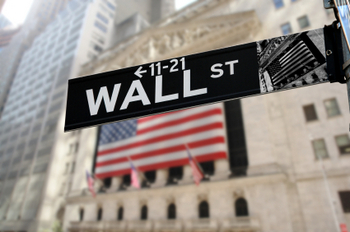
The best way to deal with insider trading is to treat it like the crime it is.
The U.S. attorney in Manhattan recently announced the criminal indictment of hedge fund SAC Capital Advisors. Some may wonder what is to be gained by the effort and expense. Unlike the case of hedge fund mogul Raj Rajaratnam, who went to prison in 2011 after his conviction for insider trading, here there is no body to jail. And the fine that might be imposed could be obtained more easily in a civil suit, where the standard of proof is lower. Indeed, the cost of the criminal prosecution may be duplicative since civil suits have been won for some of the illegal transactions, and more are in the works.
But such skepticism misses the larger issue at stake in the SAC prosecution: Only criminal prosecution can effectively change Wall Street norms.
Civil law is primarily in the business of compensating injured parties, not punishing morally blameworthy offenders. When the furnace breaks soon after you sell your house, the contract may make you liable to compensate the buyer. If your pit bull bites the man next door, civil law may require you to pay for your neighbor’s medical treatment. In these instances, you may have fallen short in your obligations in some way, but your civil liability hardly suggests that you are morally condemnable.
When the response to insider trading is limited to civil liability, which has generally been the case until recently, it simply recoups ill-gotten gains and imposes a “getting caught” tax that is calculated into the existing business model. The weakness of this response only reaffirms the notion held by too many on Wall Street that insider trading is only a technical rule violation.
Some Wall Streeters have even challenged the notion that insider trading is a crime at all, claiming it doesn’t have any victims. In their view, insider trading is different from “real” theft, such as stealing a car. Real theft is genuinely despicable, they might agree, while insider trading is a mere violation of a made-up rule.
But as a society, we bind ourselves to agreed-upon rules, and people who break those rules to benefit themselves are doing wrong and there should be consequences. These people are breaking their social contract with the rest of society. They seek to take advantage where honest people restrain themselves.
But many traders won’t take insider trading seriously until society makes it clear that it really is a violation with moral content. And we will never get that change in their internalized moral norms with civil liability alone.
We know, however, that criminal liability can change norms. Think drunk driving and domestic violence, for example. People came to think differently about the seriousness of such conduct after prosecutors — sometimes pushed by reform groups — started taking it more seriously.
Insider trading has a stronger need for strengthened norms than most other areas. By its nature, the offense is secretive. There is no bruised wife or swerving car to tell the tale. In a liberal society that prizes privacy, as ours does, it will always be extremely difficult for law enforcement authorities to effectively police such conduct.
The only realistic means of getting compliance is for the culture to change. There was probably a time when drunk drivers or wife-beaters felt comfortable privately laughing about their behavior among their peers. In fact, the government alleges SAC employees were part of a company culture in which their illegal conduct was accepted, encouraged and rewarded.
What we need to create is a culture in which the insider and the trader fear social approbation at even the hint that they might be open to colluding, a culture in which friends, family and colleagues are as ashamed of such lawbreakers as they would be of a car thief. Criminal prosecution of insider trading, even when there is no body to jail, is the only practical way of getting people to think differently about the moral character of the conduct.
This essay originally appeared in the Los Angeles Times.




